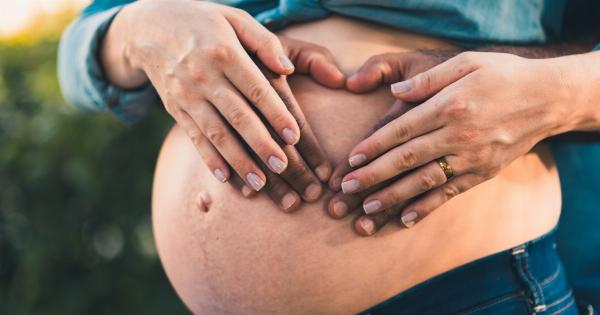Discovering that you are pregnant can bring a mix of emotions, ranging from joy and excitement to nervousness and anticipation.
Whether you have been actively trying to conceive or your pregnancy comes as a surprise, one common question lingers: have you noticed any early pregnancy symptoms?.
Early pregnancy symptoms can vary from woman to woman and may not be the same for every pregnancy. Some women may experience one or more of these symptoms, while others may have none at all during the early stages.
While a missed period is often the first sign that prompts a pregnancy test, there are other subtle signs that your body may be undergoing changes to support a growing baby.
1. Fatigue and Tiredness
Feeling more tired than usual, even if you are getting enough rest, can be a sign of early pregnancy. This fatigue is caused by hormonal changes and increased levels of progesterone in your body.
Your body is working hard to support the development of the placenta and maintain the pregnancy, which can leave you feeling drained and in need of extra sleep.
2. Breast Changes
Changes in your breasts can occur as early as one to two weeks after conception. Your breasts may become tender, swollen, or more sensitive to touch. The areolas (the dark area around the nipples) may also darken or enlarge.
These changes are a result of hormonal fluctuations and an increase in blood flow to the breasts, preparing them for lactation.
3. Nausea and Morning Sickness
Nausea and vomiting, commonly known as morning sickness, are classic signs of pregnancy. While morning sickness can occur at any time of the day, it is often most pronounced upon waking up due to an empty stomach.
The exact cause of morning sickness is still not fully understood, but hormonal changes and an increase in estrogen levels are believed to be contributing factors.
4. Increased Urination
If you find yourself making frequent trips to the bathroom, it could be a sign of early pregnancy. During pregnancy, your body produces extra fluids to support the growing baby.
This leads to increased blood volume and increased fluid intake, which in turn increases urine production. Additionally, hormonal changes can affect your kidneys and bladder, resulting in increased urgency to urinate.
5. Food Cravings and Aversions
Changes in your taste preferences and cravings can be early signs of pregnancy. You may find yourself suddenly craving certain foods or experiencing aversions to foods you previously enjoyed.
These changes are thought to be influenced by hormonal fluctuations as your body adjusts to the needs of the developing fetus.
6. Mood Swings
Pregnancy hormones can have a significant impact on your emotions, leading to mood swings and heightened sensitivity. You may find yourself easily irritated or experiencing sudden bouts of sadness or happiness.
These emotional changes are normal during pregnancy and can vary in intensity from woman to woman.
7. Constipation
Hormonal changes during early pregnancy can slow down the digestive system, leading to constipation. Additionally, as your uterus expands, it can put pressure on your bowels, further contributing to constipation.
Drinking plenty of water, eating fiber-rich foods, and staying active can help alleviate this symptom.
8. Heightened Sense of Smell
Many pregnant women report an increased sensitivity to smells. Everyday scents that were once tolerable may now become overwhelming or even nauseating.
This heightened sense of smell is thought to be related to hormonal changes and may contribute to food aversions and morning sickness.
9. Bloating and Gas
Early pregnancy hormones can cause the muscles in your digestive system to relax, leading to slower digestion and increased bloating and gas.
This symptom can be similar to what some women experience before their menstrual period, so it may be easy to overlook.
10. Light Spotting or Cramping
Some women may experience light spotting or cramping in the early weeks of pregnancy. This is known as implantation bleeding and occurs when the fertilized egg attaches to the lining of the uterus.
It is often lighter and shorter in duration compared to a normal period. However, it is essential to consult your healthcare provider if you experience heavy bleeding or severe cramping.
Remember, every woman and every pregnancy is unique, so not all of these symptoms may be present. Additionally, these symptoms can also be attributed to other factors or medical conditions.
If you suspect you may be pregnant, it is always best to take a home pregnancy test or consult with your healthcare provider for a definitive answer.
Now that you are aware of some common early pregnancy symptoms, you can better understand what your body may be going through during those early weeks.
If you are experiencing any of these symptoms, it might be a good idea to take a pregnancy test or visit your doctor for confirmation and guidance on prenatal care.


























